Torture and abuse in 2020 – Ivan’s story
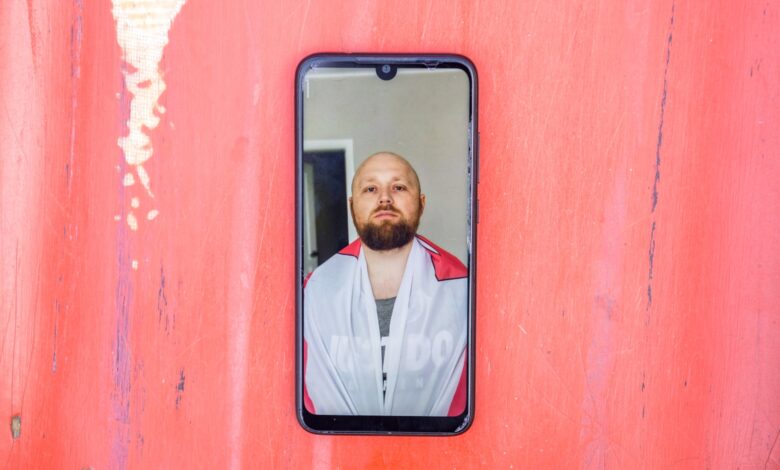
“Should we take him to the woods or turn him into a cripple?” The reply was: “We don’t have much time, so let’s make him into a cripple!”
Ivan took an active stance during the presidential campaign. He took part in the August protests, which in his case went without any serious problems, but on October 25, Ivan was detained on his way back from yet another rally. Twelve people had beaten him for an hour. Fortunately, he survived, underwent a long recovery from his injuries, and is now set to see justice served. After having left the country, Ivan continues to submit complaints to Belarusian law enforcement agencies and international organizations.
Assault, police van, beatings
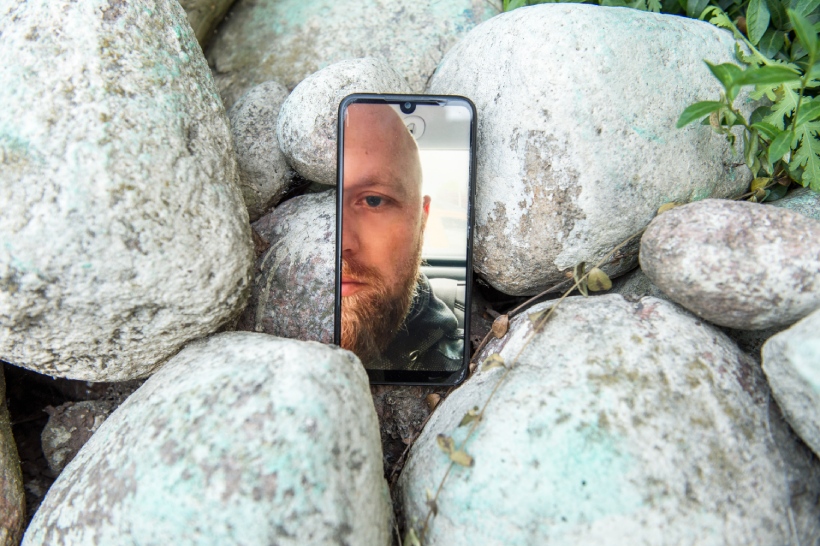
For Ivan, this story began in May 2020, when his friend suggested that Ivan help him collect signatures for Sviatlana Tsikhanouskaya. Ivan was a coordinator for the Maskouski district of Minsk and posted flyers featuring Sviatlana. Everything was quiet: no incidents or provocations. When the presidential election results were made public in August 2020, Ivan attended all the protest demonstrations. He always was at the center of events: a prisoner transporter ran over a protester’s foot right in front of him; Ivan was a couple of hundred meters away from the scene of Aliaksandr Taraikouski’s murder. At one point, Ivan had to run away from the gunfire. In the fall, Ivan continued to be an active protester.
“On October 25, my friend and I went to a protest rally where we ran across Mr. Kharavets (a reporter working for a state-controlled TV channel. Kharavets’s name is in the Belarusian People’s Tribunal database. – August2020). We are polite and educated people, so we said hello to him, even talked a little, and warned him of possible dangers. He wanted to get to the head of the procession, so we took him there. After a while, we saw that a crowd gathered around him. A protest march means thousands of different people and a thousand different emotions. We realized the reporter could get hurt, so we tried to hold people back. While he might be lying and muckraking on TV, he is still a human being and should be punished by other means.”
There was complete chaos, and the friends came close to being declared provocateurs. The reporter managed to escape. It would seem that the incident is over and done with. It turned out that it was not over.
The people marching in protest split up closer to 5 pm, and Ivan and his friend went to their car and hid their flags. They went to get some ice cream and water. A police van intercepted the men on their way back from the store.
“We didn’t expect anything like that. The two of us walked calmly, and the protest demonstration was over. And then they [policemen] ran at us. My friend managed to escape, but I dropped my car keys while crossing the road. I stopped to pick them up. Yes, I had this momentary lapse of judgment. I tripped near the Dabrabyt Bank, and the riot policemen caught me, took me by the arms, and dragged me away.
I told them several times that I wasn’t resisting so that they did not pin resisting a police officer on me. But is it even possible to talk to them?! One of them started punching me in the stomach. They took me into the police van saying, ‘You f*cker are so screwed!’ They threw me on the floor and started kicking and beating me with a stick. Not a rubber stick, but an iron one. Before the beating, I heard them ask each other: ‘Should we take him to the woods or turn him into a cripple?’ The reply was: ‘We don’t have much time, so let’s make him into a cripple!’
I was the only one detained in that police van. You know, a person can be beaten in different ways; one can be slaughtered like a pig. Later, when I was lying in a hospital bed, I heard the news of Raman Bandarenka’s death: this was exactly like my situation, they were punishing him right in the van, too. If you are not alone in there, if there are witnesses, they won’t rage like that. But when you are alone and there are twelve of them, we are not talking about being safe here. I might not have survived. When I was on bed rest recovering for a couple of months, I recalled and reevaluated a lot of things.”
They took me into the police van saying, “You f*cker are so screwed!” They threw me on the floor and started kicking and beating me with an iron stick
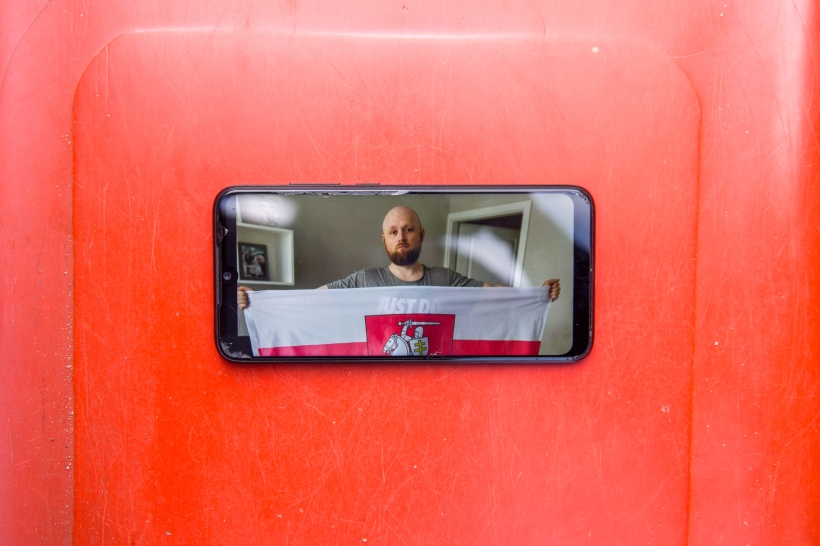
Ivan is a physically and mentally resilient person. He graduated from the Department of Physical Education in 2008. Then he served in the military and took a course at the penal correction department of the Belarusian Police Academy. He worked with inmates and as a squad commander for some time. But in 2010, Ivan decided to resign, partly because of the events that had taken place in the country: there were presidential elections and protests that year, too.
“Everyone who works with inmates is taught how to behave during a riot, in cases when people are taken hostage, and in other situations. These skills came in handy in the police van. I shielded myself from their blows pretty well: feet tucked under me, chin to chest, hands close to my head. I was in a fetal position – go ahead and beat me if you will, no big deal. It went on like that for about 5–10 minutes. It was tolerable, but then one of the riot policemen realized that their blows were ineffective, so he tied my hands with zip ties. Shielding myself became almost impossible, and I was beaten in that position for about an hour.”
Ivan recalls how he was tortured. They turned on a video camera and asked him the same question: “Did you hit the TV reporter?” Ivan said no. This question was repeated about five times, but it was impossible to beat the necessary confession out of Ivan. Then the police “found” a man who had allegedly beaten the reporter, and the man was sentenced to three years of imprisonment.
“I remember they kept taking turns – they were getting tired of beating me. I started losing consciousness from time to time: the blows were delivered primarily to my head. I was afraid they might crack my skull, so I crawled like a caterpillar and hid my head under the seat. And then I completely passed out. This might have saved my life in a sense. They threw me out near the Savetski police department saying, ‘It is your second birthday today.'”
Second birthday, Savetski district police department, prisoner transporter
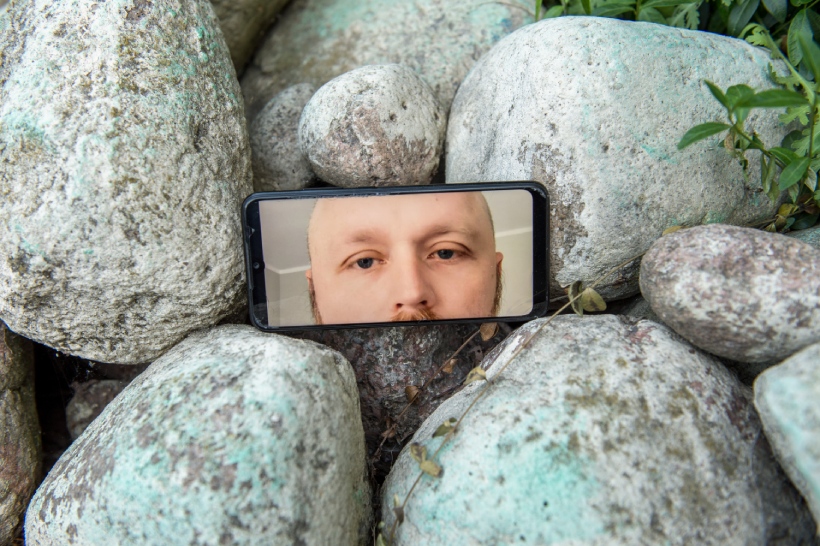
Police officers from the Savetski police department slapped Ivan on the cheeks and poured water on him, trying to bring him to his senses. But he would regain consciousness only for a moment and then black out again. Ivan woke up two hours later. He could hardly understand what was going on. He only remembers hearing the words “take off your shoelaces” and that someone signed a document holding his hand in theirs. Three more hours passed, and Ivan realized he was at the police station. They did not beat him there anymore (he almost felt like thanking them for this), but his body was terribly sore and felt like burning, and he couldn’t walk on his own. That is why Ivan was dragged under the arms from one guard to another.
“I just groaned, not understanding where it hurt and what was broken. But even in this state, I did not agree with being charged under Article 23.34 of the Administrative Offenses Code: the report stated that I had been detained near the Stela monument, at 28 Peramozhtsau Avenue. What Stela, for f*ck’s sake? Bull. If they had just written that I had taken part in the protest rally, perhaps, I, being in such a state, would have agreed. So I wrote, ‘I don’t agree.’ That was the end of it at the police department.”
When we reached the prisoner transporter, one of the officers asked, pointing at me: “What happened to this one?” Someone answered him: “This one got bit by a truncheon!” And they started laughing
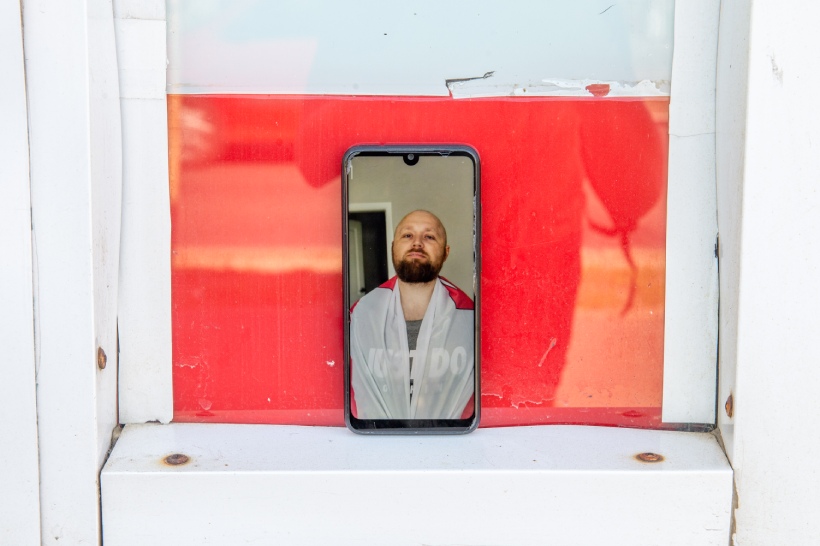
“They brought me to a prisoner transporter to take me to Akrestsina. A young guy was walking me, and I asked him: ‘Why did I get beaten up like that?’ And he answered: ‘I am new here, and I don’t know what’s going on at all.’ Sweet! When we reached the prisoner transporter, one of the officers asked, pointing at me: ‘What happened to this one?’ Someone answered him: ‘This one got bit by a truncheon!’ And they started laughing. They put me in this cocoon, the so-called tall box.”
On his way up to the prisoner transporter, Ivan noticed a white-red-white flag on the floor. He walked carefully around it and sat sideways in the tall box because he was a big guy. They put another person next to him.
“His hair was dyed, he looked fancy, he was about 19 years old, and I was bald and had a beard. The prisoner transporter drove a little bit away from the police department and stopped. The sh*t show started: they were pointing at the flag on the floor and saying: ‘Well, zmahars [the word ‘zmahar’ stands for an oppositionist, someone who opposes Lukashenko’s regime in Belarus], is this how you like your banner?’ They nicknamed me ‘Beard’. The tall box had a small breathing hole, and my fist could barely fit through. I don’t smoke, and neither does the guy who was with me, and a guard blew smoke at us. It was difficult to breathe, and it was crowded and dark. The guard kept poking, ‘Stay awake!’ It was like putting a vat on one’s head and tapping on it. This is especially difficult psychologically, and one needs to be able to remove themselves mentally from the situation.”
The prisoner transporter carrying the detainees sat parked for about two hours before reaching Akrestsina. Ivan was threatened with a sentence of six years in prison. The guards also harassed Ivan’s neighbor and wanted to cut his hair. Oddly enough, they had in their possession a battery-operated hair clipper. Ivan could not tolerate this anymore and said: “Do you want to taunt him by cutting his hair? Let’s trim my beard, but don’t touch the kid!” The guards fell silent and locked the tall box. Later, this young man helped Ivan a lot in the Akrestsina detention center.
Akrestsina, unbearable pain, trial
“When we were finally brought in, a doctor ordered me to take off my clothes. When I did, she called two other colleagues. They were doing a medical checkup, oohing and aahing. And I thought: is it really that bad? What did they see there that was so scary? They gave me a handful of pills and said: ‘If you feel really ill, call for us!’ It was bizarre: I felt awful already and didn’t know what they meant by ‘really ill’. But after taking the pills, I felt a little better and even slept for two hours.
I could not get up in the morning. We were forced to stand, but I kept falling. If I leaned on the wall, I could stay in a standing position for about 20 minutes. The problem was with my spine: I felt a stabbing pain if I suddenly turned or stood the wrong way. The doctor gave me a handful of pills again and stayed until she made sure I had taken them all. My cellmates were also shocked by how my back looked: ‘Those are marks from combat boots, can you imagine? You have boot marks on your back, like on snow.’ Those riot policemen might have had spiked boots: my back was peppered with red dots.”
The doctor began her examination and pressed two fingers to his spine – Ivan’s legs buckled
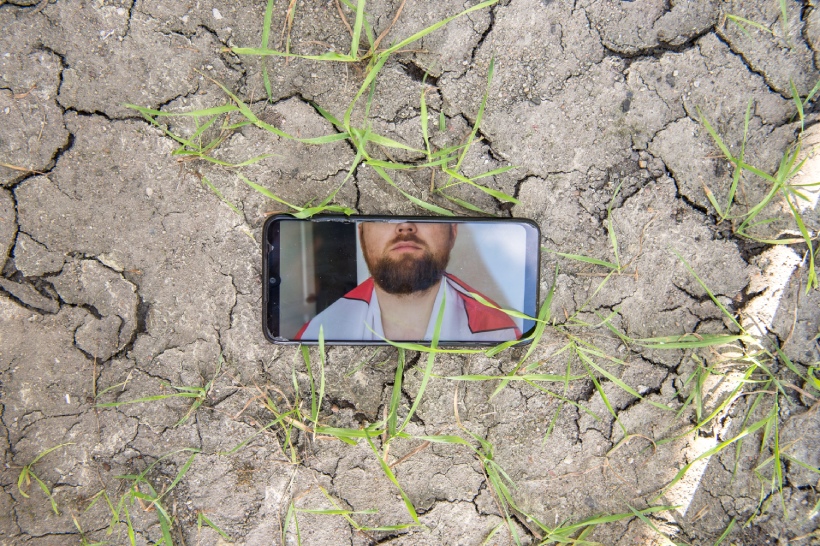
A trial, or rather a joke of a trial, was held at noon. Two unidentified men dragged Ivan into a room where a Skype conversation was held. Ivan thought it was an interview until the very last moment, and only in the end did he realize that this was how trials went those days. There were two “witnesses” in the room. The judge started examining a detention report, which provided the wrong address for the place where Ivan had been detained. Despite Ivan’s objections, one of the witnesses continued lying, claiming that he had seen Ivan at the wrong address. The judge ignored a suggestion to request CCTV footage and verify where exactly Ivan had been detained. This travesty of a trial lasted about 20 minutes – Ivan was sentenced to 15 days of arrest.
“They took me back to my cell, and I felt really ill by 4 pm. I was in such pain that I started losing consciousness. My cellmate (the very same guy from the tall box) started pounding on the door, and the other men asked to call an ambulance. Another doctor came, and they led me out into the corridor. After examining me, he yelled, ‘Get the warden!’ Someone from the administration came, and I was standing there listening with half an ear to their dialogue:
‘I will not take any responsibility for this, do what you want with him!’
‘What’s the big deal?’
‘He has a closed head injury, I am 100% sure.’
The doctor looked at me again and asked when was the last time I urinated. I had some soup for lunch, and that was it. I did not go to the bathroom, and I don’t think I could. They gave me an empty bottle and sent me to my cell. Two hours passed, but I still was unable to urinate.”
Ivan was led out of the cell again and put in a one-person cell opposite the doctor’s office. He was given a lot of pills, which helped him feel better. It was already 10 pm, and Ivan was told to strip to be examined again around midnight. The doctor was not surprised by what she was seeing. But a newbie young guard escorting Ivan was impressed. The doctor began her examination and pressed two fingers to his spine – Ivan’s legs buckled. On the bright side, he was no longer unconscious and could even stand on one leg. However, one wrong move would cause unbearable sharp pain. The doctor’s recommendation was to lie down and sleep. Ivan felt “well” in the morning compared to his condition at the police station.
“You know, there are different stages of being beaten to a pulp. The first one, when one doesn’t understand anything, was what I had at the police department. The second stage is what I call ‘half pulp’. And the third stage is when you are capable of thinking and able to bear the pain, even though you keep falling due to severe dizziness. I also got food poisoning from that soup and had diarrhea on top of all the other symptoms. I was as pale as a ghost. My stomach was in such painful knots that I remember that soup to this day (laughs).”
The doctor came to the cell in the morning and, seeing Ivan’s condition, cursed and called an ambulance. Two young women arrived. At the sight of Ivan, one of them had shaky hands, and the other cried. Ivan had an ECG test done immediately. The ambulance crew started arguing with the doctor from the detention center, asking how it was possible to keep a person in such a condition detained. The doctor answered back: “Take him with you if you will. Do you think I need all this headache?”
“Doctors were on our side if I can call it that way. They were shocked by what was happening. They had to pick up people who looked like pieces of meat from detention centers”
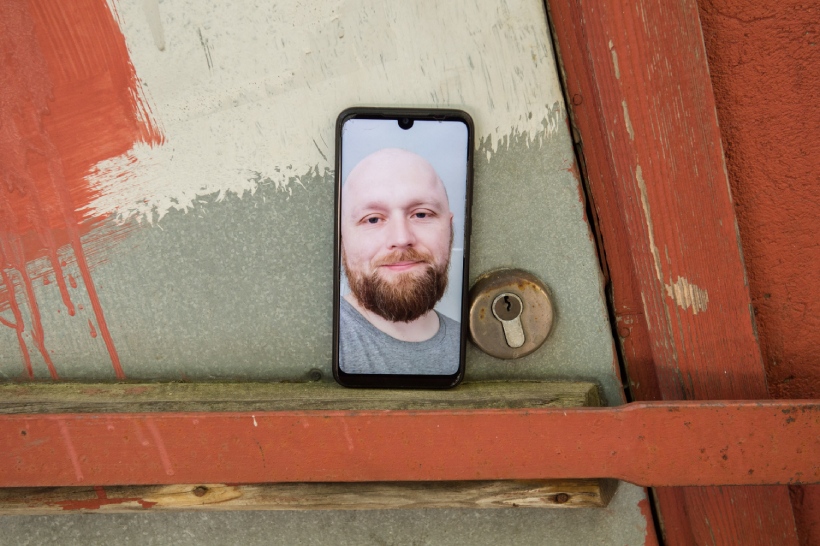
“Doctors were on our side if I can call it that way. They were shocked by what was happening. They had to pick up people who looked like pieces of meat from detention centers. This is not normal. We talked to a doctor:
‘Your injuries are of criminal nature. Feel free to proceed as you wish, but I am taking photos. I have an obligation to send these photos to law enforcement.’
‘Do what you think is right.’
‘Look, it sounds scary, but overall, you are okay. Two vertebrae processes are fractured, but they have not completely broken off. You don’t need surgery, you will just have to immobilize everything, and you will walk in two months. The contusions will heal, the concussion will go away, and you will recover from the closed head injury after two weeks of bed rest. I advise you against staying here, and I can arrange for you to be let go because they might come and take you back.'”
That was what they did. Ivan was on bed rest at home for several months. It was not until the end of January that he recovered a little and was up and about. But Ivan did not forget what had happened and filed a complaint with the Investigative Committee. He requested that an investigation into the infliction of grievous bodily harm be conducted.
“No one bothered me: it was I who started poking them. I was told over the phone that the investigation was over and a criminal case would not be opened due to the absence of corpus delicti. When I asked them where my injuries were inflicted, no one answered. They only said that law enforcement officers are allowed to use physical force under certain circumstances. I asked: ‘Were those men law enforcement officers?’ And I got a telling answer from them: ‘We don’t know.’
I recognized one of the law enforcers who had beaten me in the police van. It was Aliaksandr Yefimenka, an officer of the Main Directorate for Combating Organized Crime and Corruption. I knew him, but he didn’t recognize me, nor did I recognize him at once. The last time we saw each other was about 15 years ago. He has a peculiar way of speaking, and when I heard his voice, it rang a bell: I knew him, but I did not remember where from. Then I had a couple of months to lie down and think. And I recognized him from the comments of mutual acquaintances. It turned out he had joined the police force.”
“I recognized one of the law enforcers who had beaten me in the police van. I knew him…”
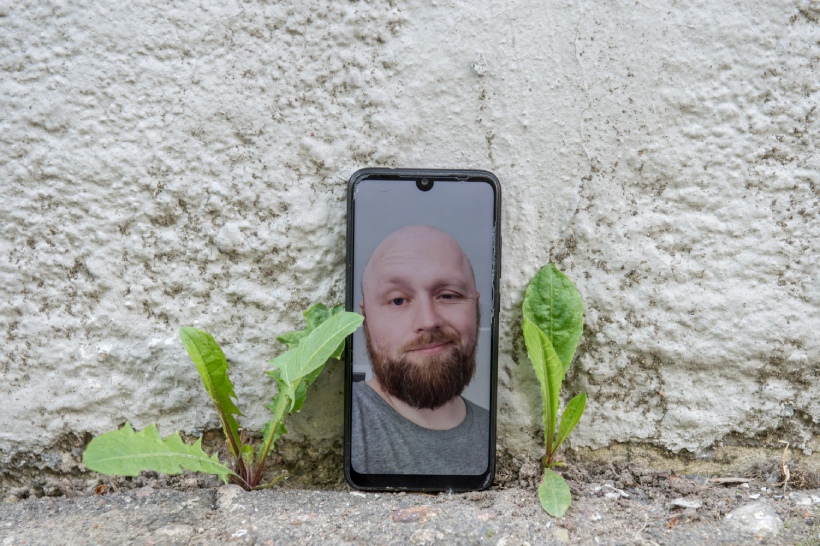
“I submitted a complaint again, and they started investigating again. On December 20, I was told that the investigation into my case was being extended. I called on December 23 – Katsiaryna Azarka, the investigator, said that there were no updates on the forensic examination. But I knew that the forensic examination had been carried out on November 18. The holidays passed, and I scheduled an appointment with the head of the medical examiner’s office in mid-January. Why not? The head of the office replied that she had sent a forensic report on my case to the Investigative Committee on December 23. I called Ms. Azarka again, but she was on vacation. Well, that happens. The other investigators did not know or say anything. I couldn’t get through to her until mid-February. ‘What do you want? We mailed all the documents to your address!’ she said. But nothing arrived in the mail.
I learned from my lawyer that the case had been closed on December 30. As they say, it is better to enter a new year without old cases. I started receiving threats when I expressed a desire to familiarize myself with the case materials. I was summoned to another investigator from the Investigative Committee thrice. This person’s duties included investigating some obscure issues; they were also tasked with checking Telegram channels. The last time I had an appointment with Ms. Azarka, she openly threatened me: ‘If you don’t stop, we will lock you up! Everyone here is already sick of you. Enough! Get out of my office, go away!’
I just laughed in her face.”
Ivan is in Poland now. He sent a claim to the Supreme Court of Belarus about a week ago. He is waiting for a reply.
“Honestly, I did not want to leave Belarus until the very end. The ‘Nash Dom’ initiative and Volha Karach (Belarusian journalist, public figure, and politician. – August2020) advised me to leave as soon as possible, but I wanted to get to the truth. I sent a written statement to the UN in January, and Volha Karach sent one to a German court. The thing is that they have to disclose my personal information. They have an obligation to inform the interested party about who accuses them and what those accusations are. And we accuse the state of inflicting torture. I am playing it straight, but still. When you play on your opponent’s home field, if they need to do something to you, they will.”
Ivan quickly wrote to a Polish consul, attached a couple of documents, and he and his family were granted humanitarian visas. Ivan’s story of how his whole family arrived at a border crossing point deserves special mention. Before he left, he checked the Ministry of Internal Affairs website to make sure he was not on the list of people prohibited from traveling outside Belarus. All the documents were in order, but the family with a small child still had to wait at the border for six hours. There were excruciating interrogations: “Where are you going? Why? Who helped you?” Then another interrogator continued: “What is it that you don’t like? Why are you leaving? Have you sold your apartment?” Then a thorough car search followed. They rifled through everything and even checked Ivan’s pockets.
“One of the border guards said quietly in my ear: ‘We believe! We can! We’ll win [a motto frequently used by Belarusian pro-democracy activists]! We were told to search you. We are waiting for a call, we’ll then say we have checked everything, and you will be able to drive out of here at lunchtime. You have to understand: they are watching us via video surveillance.’ After a while, they did get a call, and we finally got through.”
Ivan has recently sent his lawyer to read the case ruling. It says that Ivan was arrested at 8 Starazhouskaya Street, and the police officers allegedly stopped his unlawful actions. The kicker is that Ivan gave this very address in each appeal. This was the address at which he had been detained. But the detention report and the witnesses indicated that Ivan had been detained at 28 Peramozhtsau Avenue. The reason for his detention was that “… he shouted, ‘Long live Belarus!'”. No one at the police department or in court accepted Ivan’s testimony and arguments, and now the Investigative Committee confirms that his detention indeed occurred in a different place. It could be that the investigator botched this case. Or if she did everything correctly, the police officers are fools who perjured themselves then. They backed themselves into a corner.
“It is easier to live and breathe when you tell the truth. And they are lying. What will the Supreme Court choose to do now? I have also applied for international protection, but there are nuances to my case. If things go on like this in Belarus, I will not be able to return for another 5 to 7 years, and my parents are elderly. I am sick at heart when I think that if something happens, I won’t be able to come back for their funeral. But I hope and believe that everything will be fine.”
“I could not just do nothing. My family realized that I would be locked up if we didn’t leave“
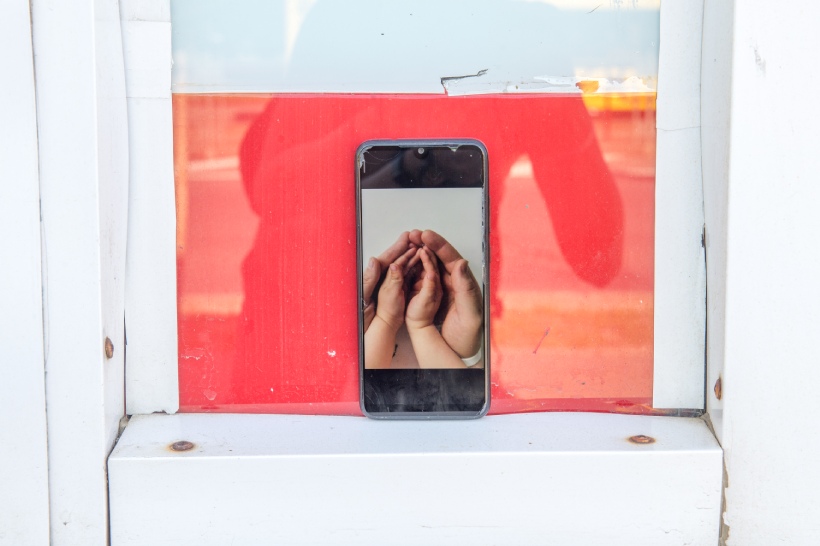
“I realized that I could not be physically present in Belarus then. I looked at myself in the mirror and realized that I couldn’t attend protest rallies or do anything physical anymore. You think I didn’t know that writing up and submitting all that paperwork was useless? But, firstly, it was to demonstrate my intent, and secondly, the papers will at least be stored in some archives for posterity. I could not just do nothing. My family realized that I would be locked up if we didn’t leave. My friend, a drummer who played at the protests, was sentenced to six years of imprisonment. You can always lose your freedom. After the incident with the police van, I realized that I only have one life. You are here today, and tomorrow you aren’t. And so many people are missing… So I live with this realization that there exist such police vans that scumbags ride in. I don’t know what motivates them and how they even justify themselves.”
We couldn’t help but ask Ivan about his mental and psychological state.
“You know, I am from a sketchy neighborhood and have been in many fights. I have no psychological trauma and no resentment. Obviously, I am upset that this happened. But I am grateful to God for this situation, and I’ve been reevaluating many things. I have never been to Europe, by the way. And now I have even resumed going in for sports here. I owned quite a successful business back in Belarus: we produced charcoal for kebab houses and cafés and provided trucking services. I had a lot to lose. Back then, the rhythm of my life was set: I could just work on self-development, live, and raise my child. I had to give it all up, and now I am going to work as a cab driver in Poland. But as it turns out, this is a new phase of my life.”
P.S. Ivan filed a claim with the Investigative Committee of Belarus. His case was suspended due to the absence of corpus delicti. His injuries have been documented.
Author: August2020 project team
Photo: August2020 project team
